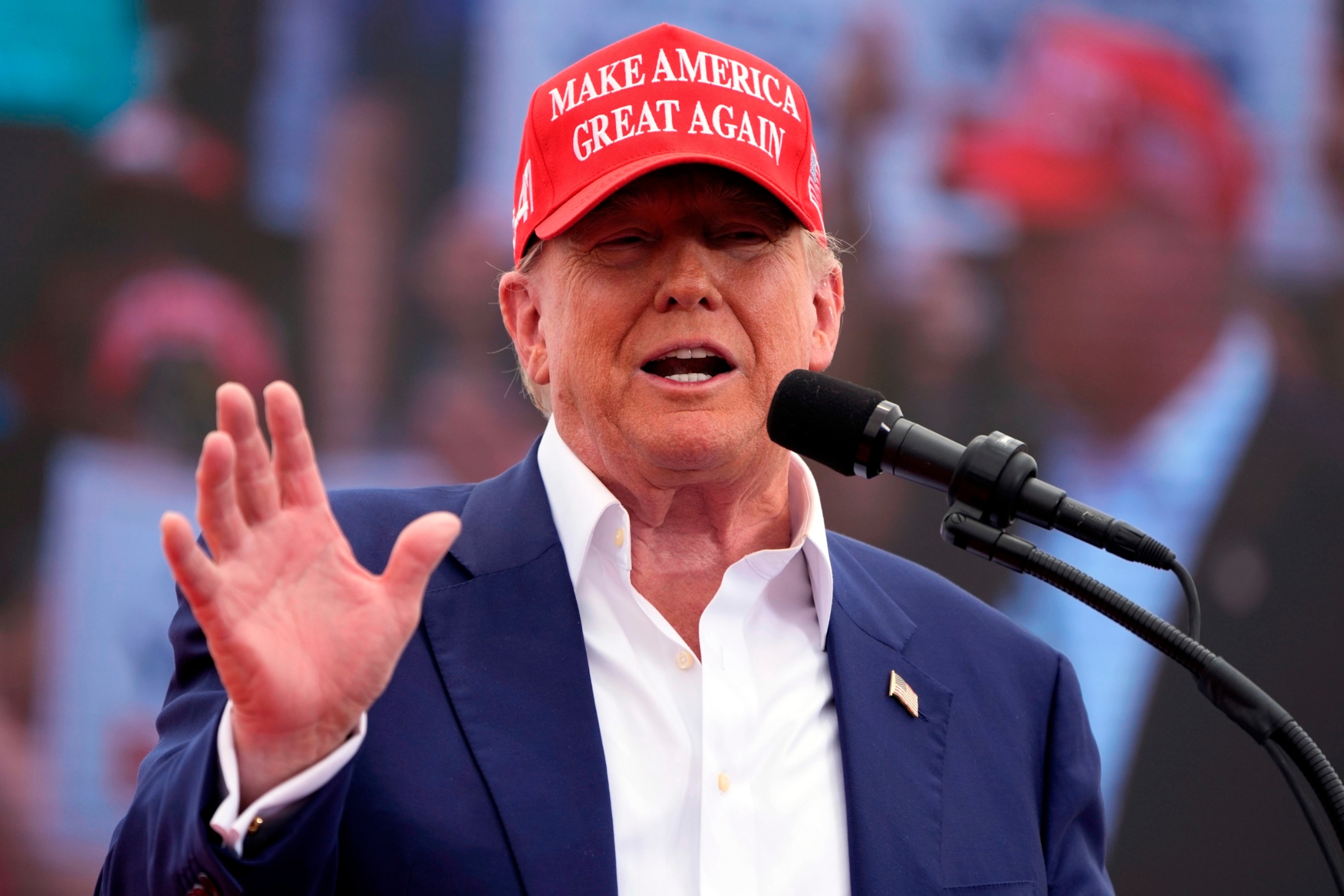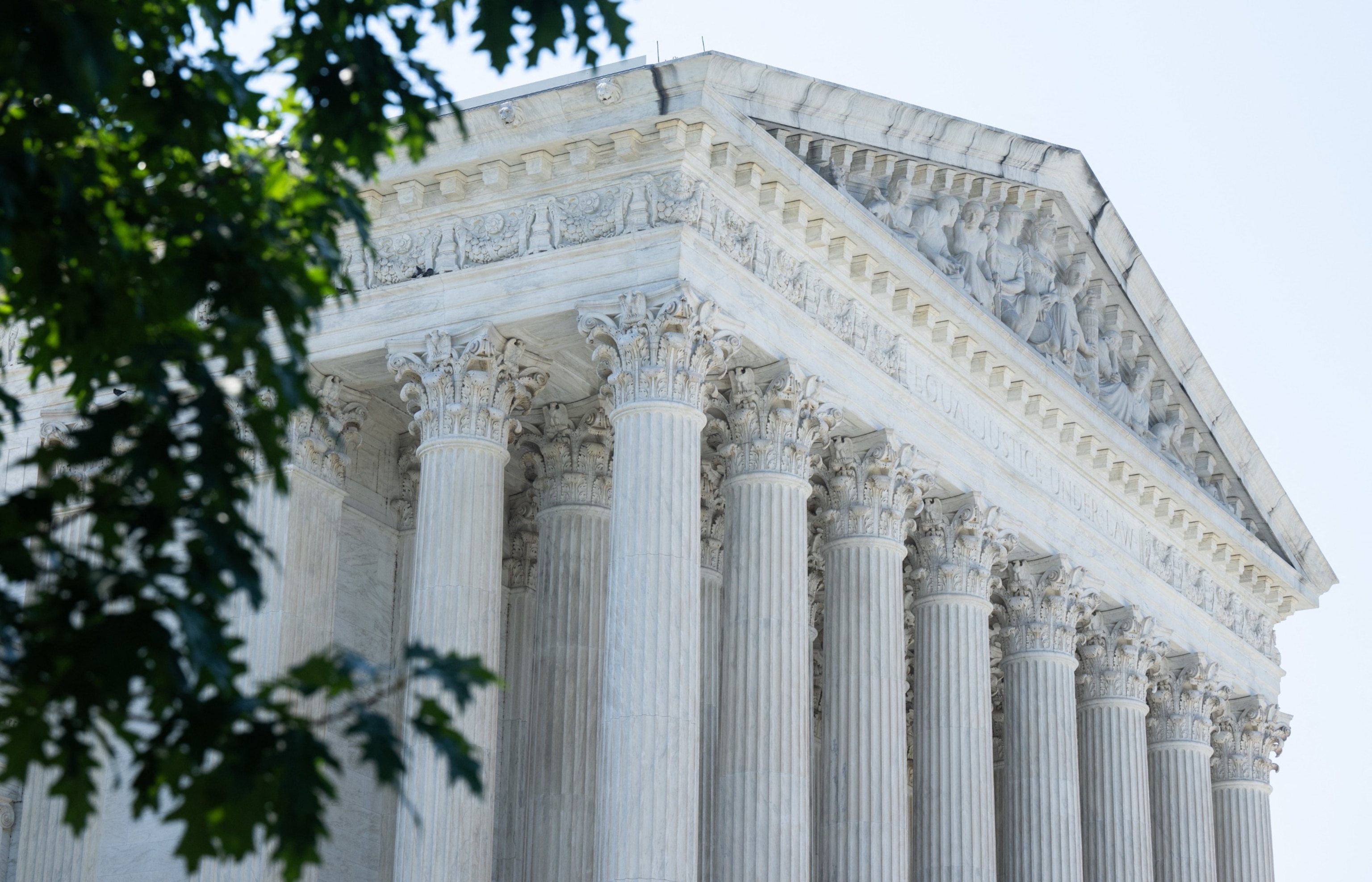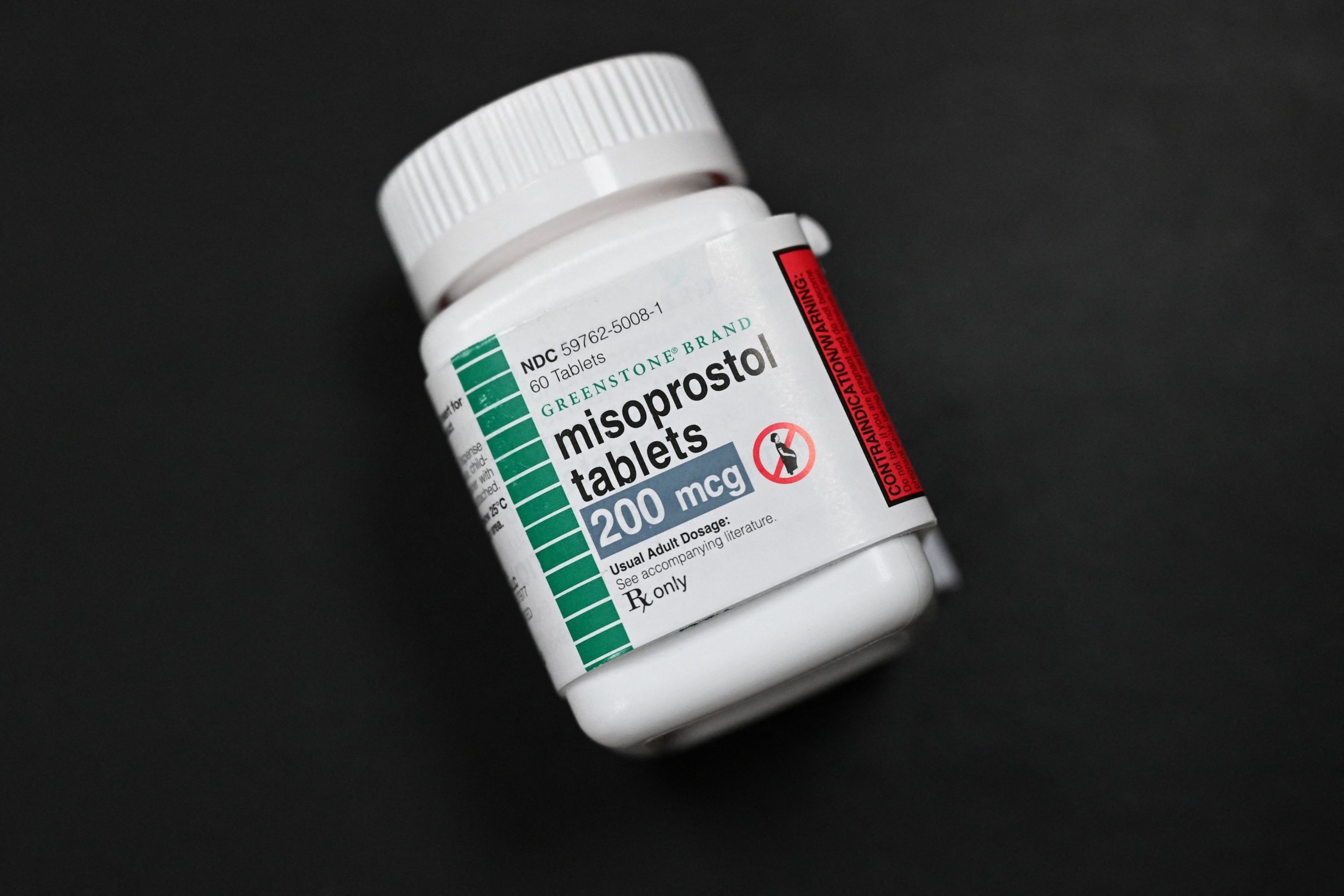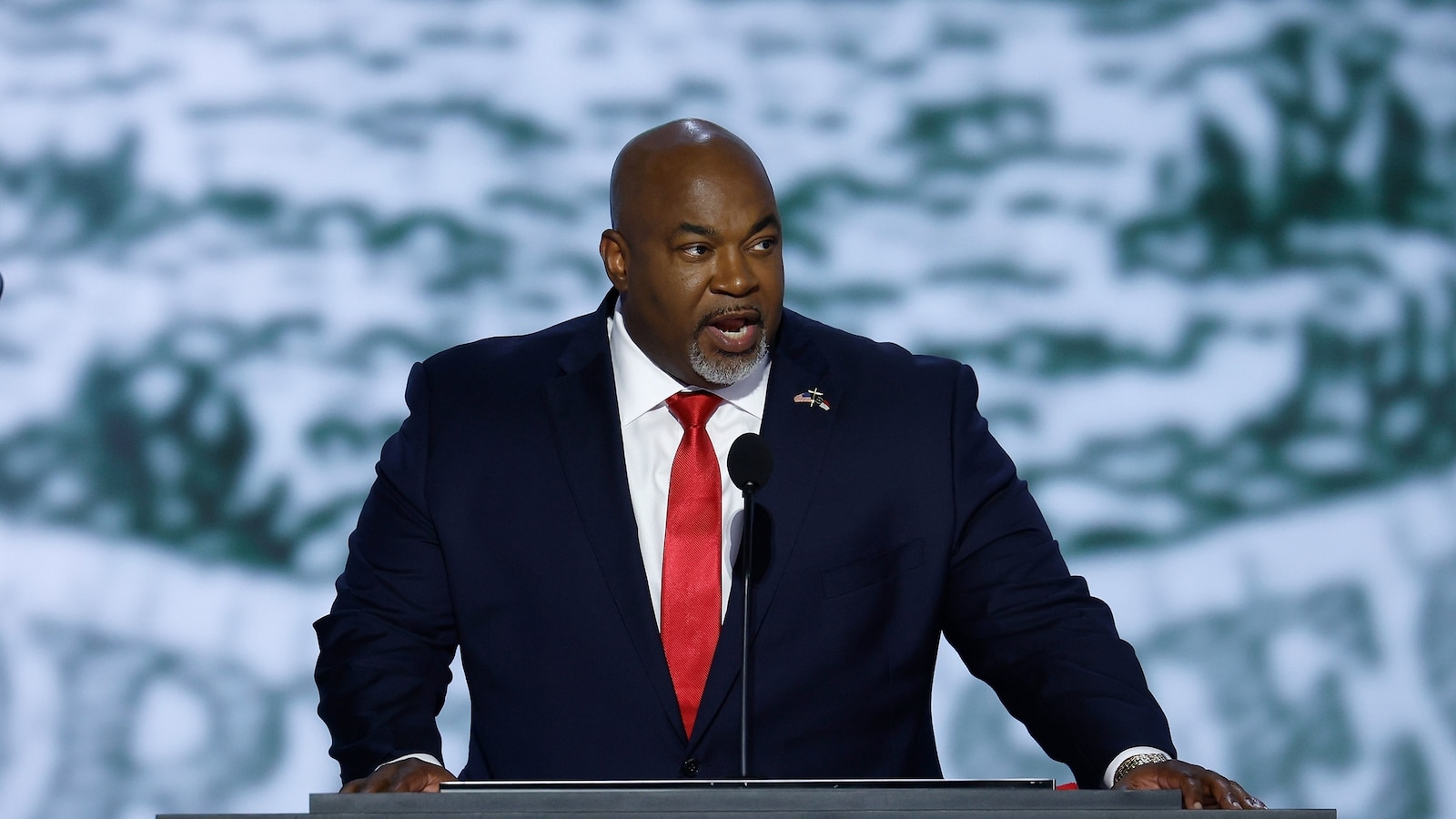Even as the U.S. Supreme Court upheld access to the abortion pill mifepristone in a unanimous decision on Thursday, former President Donald Trump has yet to disclose his own abortion pill policy.
For months, Trump has teased that he’d release policy details pertaining to the issue soon, but that moment has yet to come.
Trump has been vague when it comes to reproductive rights as he himself acknowledges the importance of not alienating voters with his position in order to win elections. However, his comments come in an election year as abortion and contraception access remain key issues for many voters headed into November’s election.
Trump’s campaign pushed back, saying that the former president has been “very clear.”
“He supports the rights of states to make decisions on abortion, and supports exceptions for abortions in cases of rape, incest, and life of the mother,” Trump campaign spokesperson Karoline Leavitt said in a statement.
When the unanimous decision came down Thursday morning, the former president was meeting with congressional Republicans, but sources said he did not mention the ruling directly. Instead, he spoke of the Supreme Court’s overruling of Roe v. Wade in June 2022 — a landmark decision that he takes credit for.
“We did that — it was an incredible thing, an incredible achievement. We did that. And now the states have it, and the states are putting out what they want. It’s the will of the people,” Trump said previously of the court’s vote to overrule Roe v. Wade.

Republican presidential candidate former President Donald Trump speaks at a campaign rally, June 9, 2024, in Las Vegas.
John Locher/AP, FILE
On the Supreme Court decision, Trump campaign Senior Adviser Danielle Alvarez said, “The Supreme Court has unanimously decided 9-0. The matter is settled.”
Trump has said abortion restriction decisions should be up to the states and insisted he believes in three exceptions: rape, incest and to save the life of the mother.
He has not said if he personally favors a certain number of weeks into pregnancy at which state-level bans should take effect, though he has publicly criticized a six-week ban in Florida and, more recently, talked privately about the idea of a national 16-week ban with exceptions, sources told ABC News in February.
Earlier this week, Trump spoke at the Life & Liberty Forum hosted by the Danbury Institute, an organization that says it promotes Judeo-Christian values and opposes abortion — where he did not mention abortion.
Trump told the group he’d stand by their side and vaguely told the anti-abortion group they would make a “comeback” if he’s reelected.
“These are going to be your years because you’re going to make a comeback like just about no other group,” Trump said to the group.
Last month, Trump faced backlash as he tried to walk back comments he made suggesting he’s open to restricting contraceptives.

A view of the U.S. Supreme Court, June 13, 2024, in Washington.
Saul Loeb/AFP via Getty Images
“Well, we’re looking at that and we’re going to have a policy on that very shortly,” Trump said during an interview with Pittsburgh TV station KDKA-TV. “And I think it’s something you’ll find interesting and it’s another issue that’s very interesting.”
Again, in late April, during an interview with TIME, Trump said he would have a statement out in two weeks explaining his position on mifepristone; however, when pressed on when the delayed announcement would be revealed, campaign sources told ABC News it would happen soon.
President Joe Biden has been more clear on the issue. Biden has made abortion a key issue in what is expected to be a tight race, and Vice President Kamala Harris has capitalized on the issue on the campaign trail.

Misoprostol, one of the two drugs used in a medication abortion, is displayed at the Women’s Reproductive Clinic, June 17, 2022, in Santa Teresa, N.M.
Robyn Beck/AFP via Getty Images, FILE
Biden has blamed Trump for the spread of abortion bans since the end of Roe v. Wade, encouraging voters to support reproductive rights — and him — in November.
“[Trump is] wrong, the Supreme Court was wrong. It should be a constitutional right in the federal Constitution, a federal right, and it shouldn’t matter where in America you live,” Biden said in a speech in April. “This isn’t about states’ rights, this is about women’s rights.”
Democratic National Committee press secretary Emilia Rowland emphasized the stakes of the election, specifically toward reproductive freedoms. She said in a statement that the Supreme Court’s decision on Thursday “does not change the fact that because of Trump, millions of women in states across the country cannot access the health care they need,”
Biden on Thursday reminded voters that the fight for women’s reproductive freedom is not over.
“Today’s decision does not change the fact that the fight for reproductive freedom continues,” Biden said in a statement. “It does not change the fact that the Supreme Court overturned Roe v. Wade two years ago, and women lost a fundamental freedom.”
Leavitt, with the Trump campaign, said “Joe Biden does not have any good policy of his own, so his failing campaign peddles lies about President Trump’s views in a dishonest attempt to fear voters into supporting him.”
ABC News’ Rachel Scott, Jay O’Brien, John Parkinson, Benjamin Siegel and Lauren Peller contributed to this report.
The Supreme Court of the United States recently made a significant ruling on the controversial drug mifepristone, commonly known as the abortion pill. The decision comes at a time when the Trump administration’s policy on the medication remains unclear, leaving many women and healthcare providers in a state of uncertainty.
Mifepristone is a medication used in combination with another drug, misoprostol, to induce abortion in early pregnancy. The drug has been approved by the Food and Drug Administration (FDA) since 2000 and is considered safe and effective when used as directed by healthcare providers. However, its availability and use have been subject to political and legal battles for years.
In July 2020, the FDA temporarily relaxed restrictions on mifepristone due to the COVID-19 pandemic, allowing patients to receive the medication through telemedicine and by mail. This decision was seen as a victory for reproductive rights advocates, who argued that the in-person requirement for obtaining the drug placed unnecessary burdens on women seeking abortions, especially during a public health crisis.
However, in January 2021, the Trump administration reinstated the in-person requirement for mifepristone, citing concerns about the drug’s safety and potential risks. This move was met with criticism from healthcare providers and advocates, who argued that the decision was politically motivated and would harm women’s access to safe and timely abortions.
The recent ruling by the Supreme Court on mifepristone adds another layer of complexity to the ongoing debate surrounding the drug. The court’s decision allows patients to receive mifepristone by mail during the COVID-19 pandemic, overturning the Trump administration’s restrictions. This ruling is a significant victory for reproductive rights advocates and ensures that women can continue to access safe and effective abortion care during these challenging times.
However, the future of mifepristone remains uncertain as the Biden administration takes office. President Biden has expressed support for expanding access to reproductive healthcare, including abortion services, but it is unclear how his administration will address the issue of mifepristone specifically. Healthcare providers and advocates are hopeful that the new administration will prioritize women’s health and rights by permanently lifting restrictions on the medication.
In conclusion, the Supreme Court’s ruling on mifepristone is a step in the right direction for ensuring women’s access to safe and timely abortions. However, the future of the drug remains uncertain as the Biden administration navigates its stance on reproductive healthcare. It is crucial that policymakers prioritize women’s health and rights by supporting evidence-based policies that expand access to essential medications like mifepristone.



